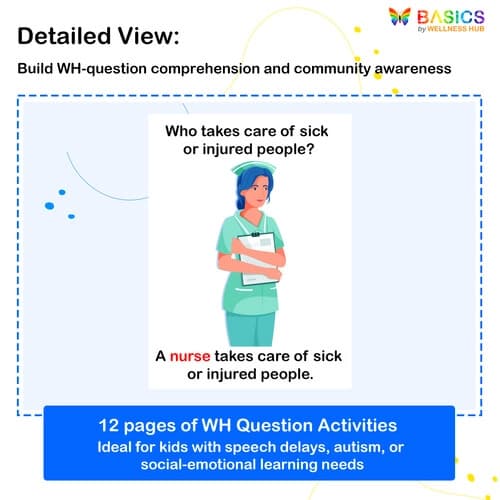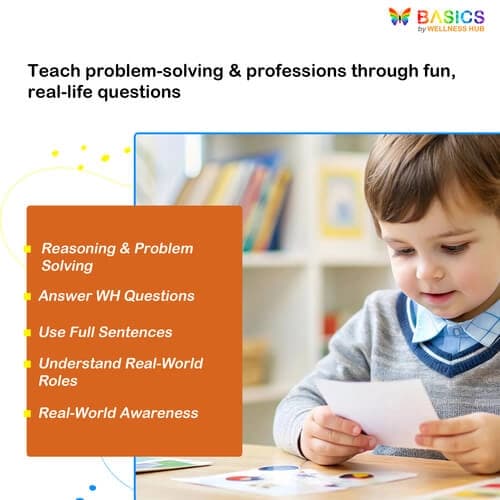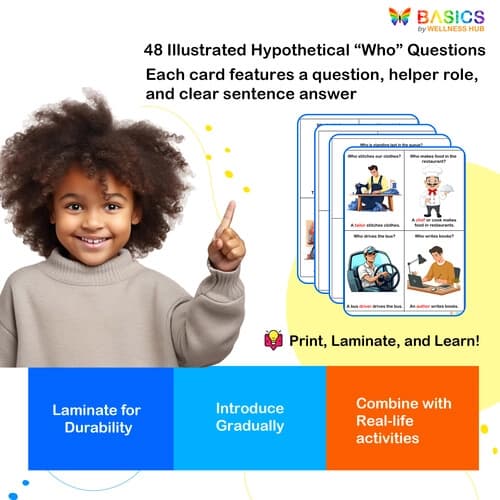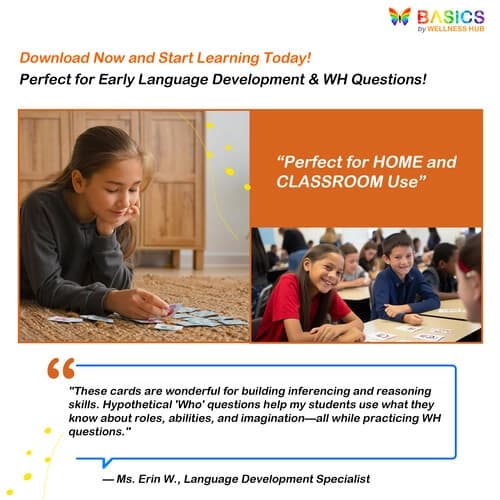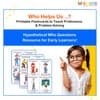
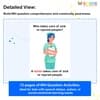
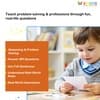
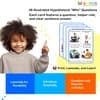
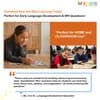
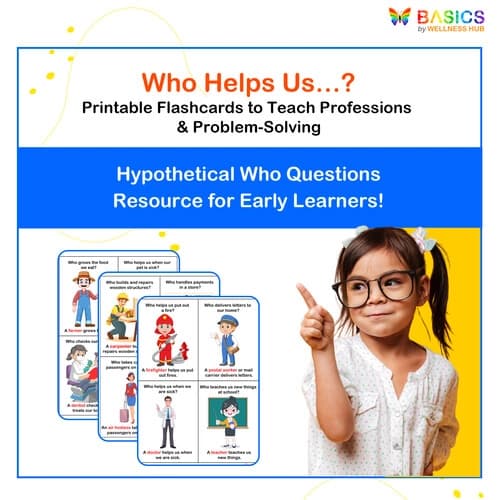
Hypothetical Who Questions – Professions Flashcards for Kids (Printable PDF)
₹80
₹160
50% off
0 (0 ratings)
Grade Levels
Pre-K - Grade 2 (Ages 3-7)
Content Overview
Format: Printable PDF, Total Pages: 12, Features: 48 illustrated hypothetical “Who” questions with profession-based answers
Categories
Pages from the Resource
Teach children about community helpers through engaging hypothetical “Who” questions like “Who helps us put out a fire?” This printable PDF includes 48 illustrated cards featuring everyday jobs and their roles. Ideal for developing WH-question comprehension, professions vocabulary, and early reasoning skills in young learners and children with special needs.
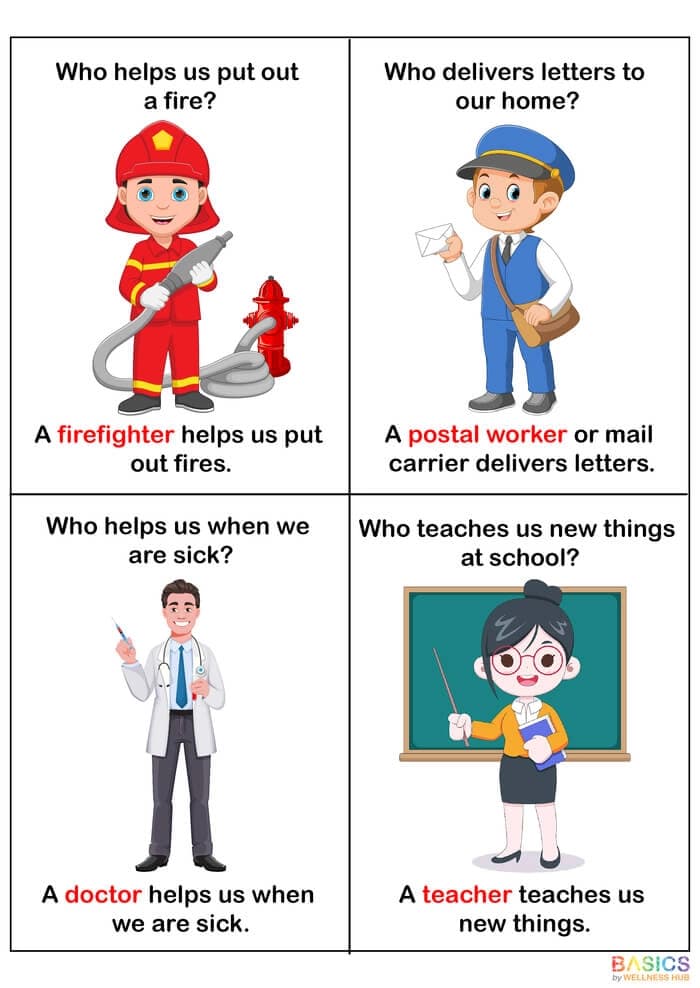
Page 1
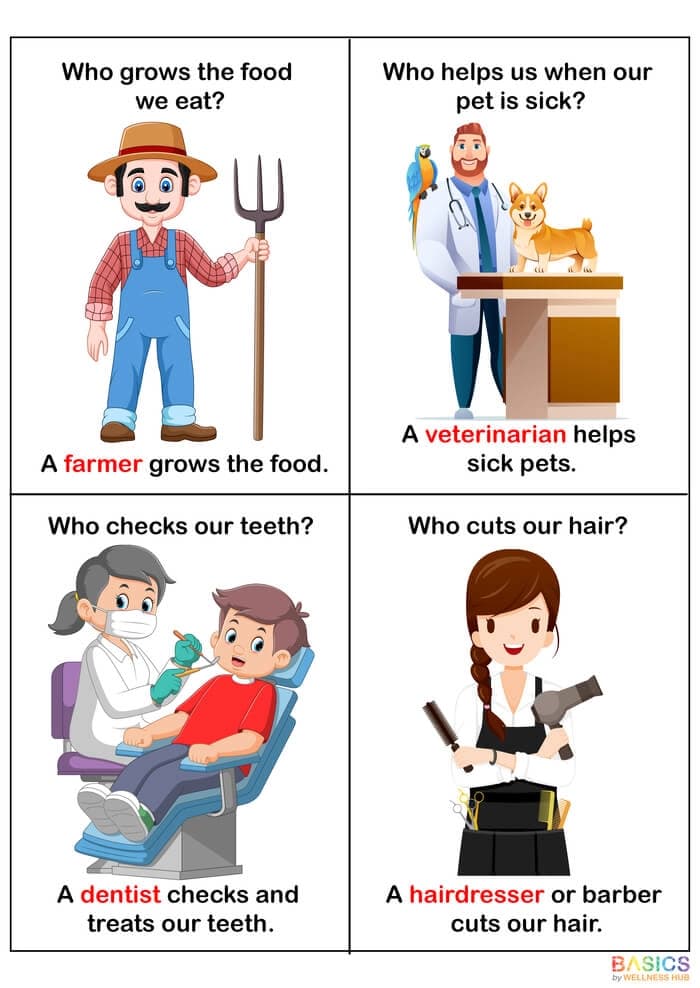
Page 2
What Users Say
0
0 ratings
5
0+
4
0+
3
0+
2
0+
1
0+
5 Stars
Product is Good to use.
1 year ago
Varsha Parent
Similar Products
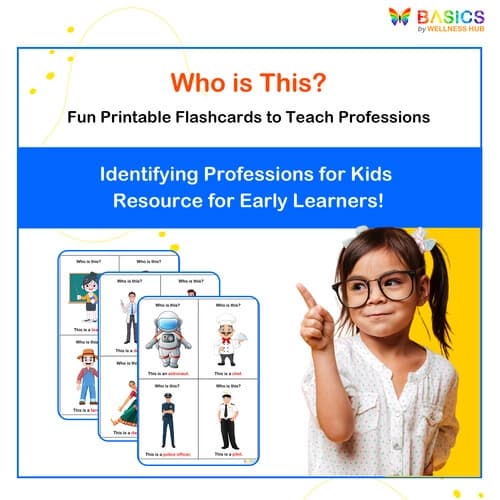
Who Questions Flashcards – Identifying Professions for Kids (Printable PDF)
₹ 80.00
₹ 160.00
50% off
4.8 (52 ratings)
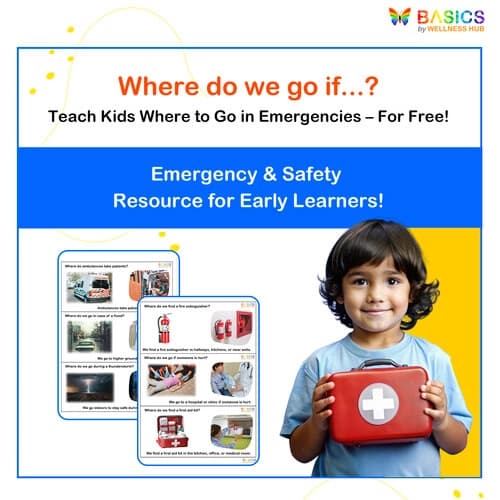
Where Do We Go? WH Questions – Emergency & Safety (Free Printable PDF)
FREE
₹160
50% off
4.8 (60 ratings)
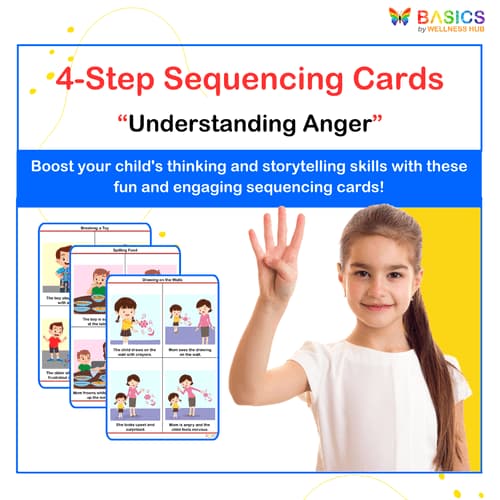
4-Step Sequencing Cards: Understanding Anger – Printable PDF
₹ 80.00
₹ 160.00
50% off
4.8 (44 ratings)
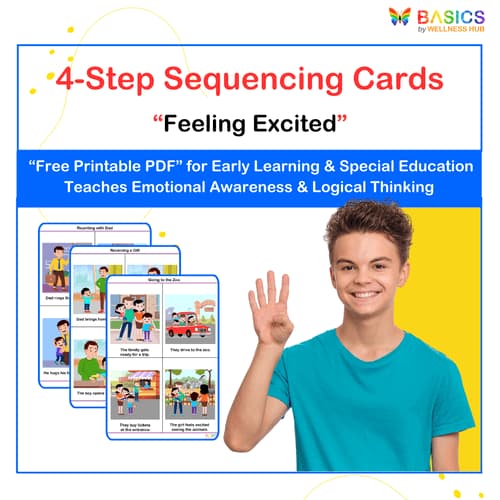
4-Step Sequencing Cards: Free Printable PDF for Feeling Excited
FREE
₹160
50% off
4.7 (60 ratings)
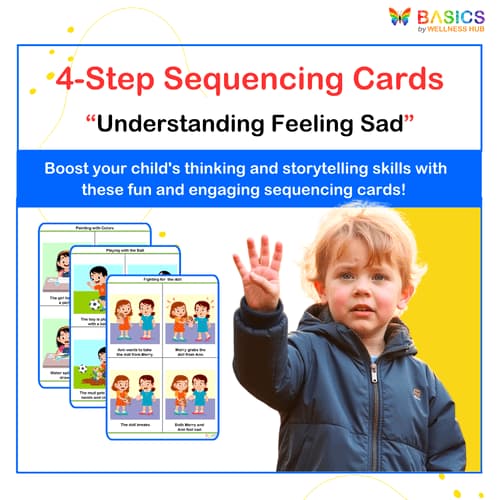
4-Step Sequencing Cards: Printable PDF for Understanding Feeling Sad
₹ 80.00
₹ 160.00
50% off
4.6 (56 ratings)
About the Product
Introduction
Answering hypothetical “Who” questions helps children not only learn vocabulary but also develop reasoning, problem-solving, and real-world understanding. This printable flashcard set introduces children to the question format “Who helps us…?” using illustrated scenarios that reflect everyday situations and community helpers.
Each card presents a simple, age-appropriate question (e.g., “Who helps us put out a fire?”) followed by a clear answer (“A firefighter helps us put out fires.”). These cards are designed to support WH-question comprehension, functional vocabulary development, and higher-level thinking, making them ideal for speech therapy, early intervention, and classroom settings.
✅ Product Details
- Format: Printable PDF
- Total Pages: 12
- Flashcards Included: 48 cards (4 per page)
- Visuals: Friendly, illustrated characters representing community helpers
- Structure: Each card features a question, matching illustration, and full-sentence answer
- Sample Professions Covered: Firefighter, Postal Worker, Doctor, Teacher, Police Officer, Chef, Dentist, Mechanic, Lifeguard, and more
✅ Educational Benefits
- Develops WH-Question Comprehension: Helps children understand and answer “Who” questions in a functional, applied context
- Builds Everyday Vocabulary: Introduces important community helper roles that children encounter in real life
- Strengthens Reasoning Skills: Encourages children to think about problems and who can solve them
- Supports Sentence Expansion: Models complete, grammatically correct answers for children to imitate and practice
- Ideal for Special Needs: Especially useful for children with autism, language delays, or social communication difficulties
- Flexible Use: Can be integrated into home learning, therapy, or classroom group activities
✅ Instructions for Use
- Print and Prepare the Cards
- Print the 12-page PDF on standard or thick paper. Laminate for longer durability and repeated use.
- Introduce Questions in Sets
- Start with 4–6 flashcards. Read the question aloud, show the illustration, and model the full answer.
Example: “Who delivers letters to our home?” → “A mail carrier delivers letters.”
- Start with 4–6 flashcards. Read the question aloud, show the illustration, and model the full answer.
- Encourage Child Responses
- After hearing a few examples, pause before giving the answer to allow the child to guess or respond.
- For emerging speakers, provide sentence starters: “A ____ helps us…”
- Sort by Role or Task
- Ask children to group cards based on similar job types (e.g., medical helpers, public safety, educational roles).
- Link to Daily Life
- Relate questions to the child’s experiences.
Example: “Who helped you when you were sick?” → “A doctor!”
- Relate questions to the child’s experiences.
- Use in Therapy Goals
- Excellent for targeting receptive and expressive WH-question goals, sentence length, or functional vocabulary.
- Incorporate in Group Settings
- Let children take turns answering questions, acting out roles, or drawing their own version of the helper.
✅ Activities Using the Resource
These flashcards offer a highly interactive and flexible approach to learning about community helpers. Below are several structured and creative ways to use them across home, classroom, or therapy settings:
1. “Who Helps Us?” Flashcard Practice
- Show a flashcard and ask the question aloud: “Who helps us fix a broken pipe?”
- Encourage the child to answer before revealing or reading the full response.
✅ Reinforces listening, recall, and verbal expression.
2. Job Matching Game
- Lay out flashcards and pair them with matching tools, places, or objects (e.g., stethoscope with doctor, envelope with mail carrier).
✅ Builds logical reasoning and real-world associations.
3. Act It Out – Role Play Game
- Read a card aloud and have the child act out the profession.
- Example: “Who helps us learn new things?” → The child pretends to be a teacher.
✅ Encourages movement, imagination, and social play.
4. Community Helper Sorting Challenge
- Sort cards into categories such as:
- Medical helpers
- Emergency workers
- School/community workers
✅ Enhances classification and understanding of professional roles.
5. WH Circle Time Discussion
- Use flashcards in a group setting. Each child takes a turn drawing a card and answering the question aloud.
- Follow up with open-ended questions: “Have you seen a firefighter before?”
✅ Builds turn-taking, confidence, and group participation.
6. Draw Your Own Helper
- After reviewing several cards, ask the child to draw a person who helps others.
- Prompt them to describe what that person does using a similar sentence structure.
✅ Supports creative thinking and sentence generation.
FAQs
Q1: What age range is this resource best suited for?
A1: It’s ideal for children aged 3 to 7 years, especially those in preschool through early elementary levels.
Q2: Can I use this with children who have speech delays or autism?
A2: Yes! These cards are especially effective for children with autism, speech and language delays, or social communication challenges. The structured format supports comprehension and expression.
Q3: How is this different from regular “Who” flashcards?
A3: These are hypothetical questions that require reasoning and understanding of real-life situations—not just identifying people, but linking them to specific actions or problems.
Q4: How many professions are covered?
A4: The set includes 48 illustrated flashcards, featuring a wide range of helpers like doctors, police officers, firefighters, chefs, teachers, mechanics, and more.
Q5: Can I use this in speech therapy or IEP-based instruction?
A5: Absolutely. It supports WH-question goals, sentence construction, functional vocabulary, and social understanding—making it a great fit for individual or group therapy sessions.
Q6: Do I need any extra materials to use this?
A6: Just print the cards and you’re ready to go. Optionally, you can laminate them or pair them with related objects or role-play props for more engagement.
✅ Usage Rights and Restrictions
- This resource is for personal, educational, and therapeutic use
- You are welcome to use it in:
- Home learning
- Speech or occupational therapy
- Classroom or special education environments
- Not allowed:
- Reselling or redistributing the file
- Uploading it to public file-sharing platforms
- Modifying for commercial purposes
- Please link back to the original download page when sharing with others.
✅ Conclusion
The Hypothetical Who Questions – Professions Flashcards are a powerful way to teach children about the helpers in their community and how to answer functional “Who” questions with meaning. These flashcards not only build language and reasoning skills but also encourage empathy, social awareness, and real-world understanding.
Whether you’re a parent helping your child learn at home or a therapist working on structured WH-question goals, this resource brings speech, comprehension, and connection together—one helper at a time.
